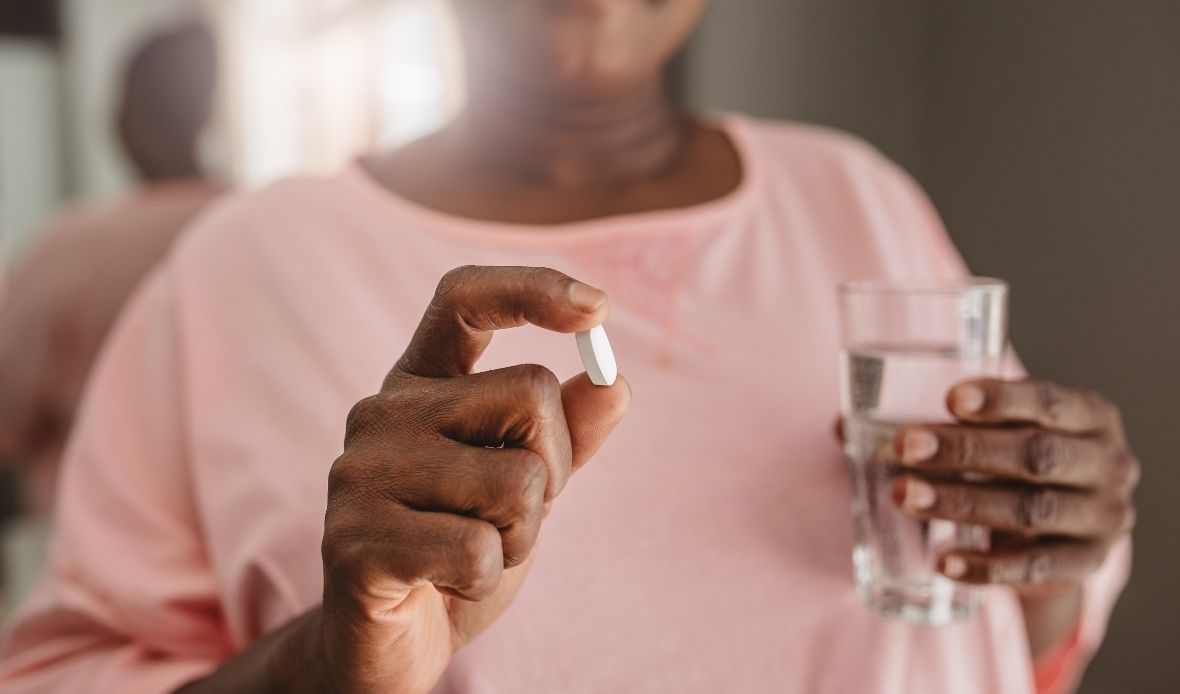
For many of us, managing our medications—and everything that comes with it—can feel confusing and overwhelming. To help you work toward your health goals with confidence, our dedicated MOBE Pharmacists take on your top questions.
Are over-the-counter medications safer?
Over-the-counter (OTC) medications can often be used safely without talking to a health professional if following the instructions on the package. However, just like with prescription medications, it is important to seek help if your symptoms don’t resolve in a reasonable amount of time after using the medication as directed, or if you start experiencing side effects. OTC medications can also interact with other OTC meds, prescriptions, and herbals, so always check with a pharmacist before adding to your regimen.
What if I forget to take my pill at the prescribed time?
Many of us forget to take our medication from time to time. In general, taking the missed dose as soon as you remember is best, unless it’s close to the time of your next dose. For many medications, doubling up on doses can cause serious negative effects, although every medication is different. When in doubt, ask a pharmacist. If you find yourself frequently forgetting to take your meds, try setting an alarm or automatic text reminder. You can also talk with a MOBE Pharmacist about other options that might better fit your schedule.
Should I keep unused or expired medication?
Extra, unopened, expired, and unwanted medications should always be disposed of properly. Keeping extra medications on hand can increase the likelihood of a medication mix-up in the future. Additionally, once a medication expires it may no longer be as potent—meaning it may not work as well.
Remember, our health status is always changing—a prescription medication that may have been appropriate for us today, under a certain set of circumstances, may not be the appropriate treatment in the future.
When should I let my doctor know about side effects?
If you are experiencing a symptom while taking any prescription, OTC, herbal, or vitamin products, and you can’t pinpoint the cause, talk to your doctor. The best approach is to speak up and ask questions.
What if my medications feel like they’re not working anymore?
Here are some questions to discuss with your doctor if you feel like your medications are not working anymore:
Having answers to these questions will help you have the necessary information to work with your doctor, or a MOBE Pharmacist, to find solutions for achieving your health goals.
What does “take on an empty stomach” mean?
Taking medicine on an empty stomach means that you should take your pills two hours before you eat or two hours after you eat. Get more help decoding medication labels here.
When should I consult a pharmacist in addition to my doctor?
Think of the pharmacist as your medication expert. Medications are extremely complex, and there are many things to consider when making sure a medication will help someone and remain safe as their body changes over time. It’s important we don’t overuse any medications and that we stop taking them when they’re no longer needed. Pharmacists understand how food, the environment, and other drugs can interact with each other, impacting the value and experience you can have from a medication. They also look at the full picture with these questions in mind, providing complementary care to your doctors and other health care providers.
A licensed MOBE Pharmacist can help you minimize risks and make the most of your medications—including prescriptions, over-the-counter medications, herbals, and supplements. Get started today.